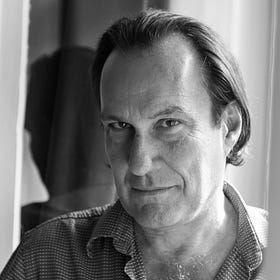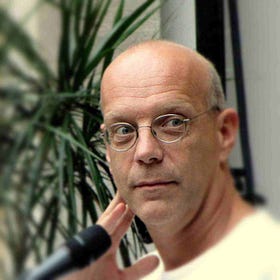When does it ever happen that an intelligent contemporary describes himself as a neo-Luddite with conviction and a certain sense of status? This alone would be reason enough to talk with Baron Robert Jacob Alexander Skidelsky, co-founder of the British Social Democratic Party and a man who can look back on a long career in the English House of Lords. Skidelsky came into the public’s consciousness primarily through his multi-volume biography of John Maynard Keynes, a work that sharpened and changed the Baron’s perspective on the machine age. While Keynes was an optimist, in Skidelsky’s writings, a distinctive, dystopian view gained the upper hand, not the least through his experiences of the Great Financial Crisis. And there’s no doubt that the seismic shock of the Digital Revolution has pushed Capitalism into a deep crisis of legitimacy, which can be seen primarily as our diffuse unease with modernity. And because it is easier to imagine the end of the world than the end of capitalism, many of our contemporaries seek salvation in apocalyptic thinking. Skidelsky, on the other hand, in addition to his economic grammatology, views the broader historical context as he focuses on the Machine as the Social Engine influencing our living conditions far more than any political ideology. Consequently, our discussion explores precisely what the upheaval accompanying the digital revolution is and to what extent we are dealing with a controllable event.
Robert Skidelsky, who taught Advanced International Studies at Johns Hopkins University in 1970 and has been an Honorary Fellow of Jesus College in Oxford since 1997, can look back on a varied career in politics while, above all, publishing several books.
Recent publications
Related Content
Capitalism - Dead or Alive?
Der Kapitalismus ist tot (Er weiß es nur noch nicht) was published in 2018, the same year as Philosophie der Maschine and Eine kurze Geschichte der Digitalisierung, and is the fifth in the series of Martin’s New Works. Although audible only as background noise in Martin’s earlier works, the debate with Marx was omnipres…
Im Gespräch mit ... Guillaume Paoli
Guillaume Paoli ist ein überaus anregender Gesprächspartner, schon deswegen, weil er über das seltene Vermögen verfügt, die Wendungen des Spätkapitalismus in ihrer ganzen psychischen Abgründigkeit zu entziffern. Und weil er, anders als die meisten postmodernen Zeitgenossen, auf seiner Entfremdung beharrt, ist er niemals auch nur in Versuc…
Im Gespräch mit ... Thomas Mayer
Wenn es in der Ökonomie den Konterpart des Kriegsphotographen gäbe, so könnte man Thomas Mayer einen ›Physiognomen des Crashs‹ nennen, nicht zuletzt auch deswegen, weil seine Biografie ihn mehrfach ins Auge des Sturms hineingeführt hat. Nach dem Berufseinstieg ins Kieler Instituts für Weltwirtschaft gelangte der junge Volkswirt zum Internati…
Im Gespräch mit ... Geert Lovink
Wie nennt man einen Avantgardisten, der in die Jahre gekommen ist? Vielleicht ist das egal, denn die Frage, die der Netzaktivist Geert Lovink an die Welt gestellt hat, hat sich bis heute heute keineswegs erledigt – ganz im Gegenteil. Tag für Tag wird klarer, dass die Welt der Internets keine künstliche Hinterwelt darstel…
























Share this post